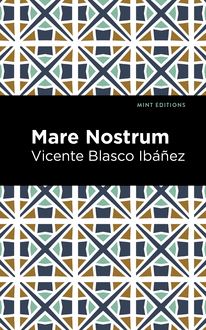-
 Univers
Univers
-
 Ebooks
Ebooks
-
 Livres audio
Livres audio
-
 Presse
Presse
-
 Podcasts
Podcasts
-
 BD
BD
-
 Documents
Documents
-
- Cours
- Révisions
- Ressources pédagogiques
- Sciences de l’éducation
- Manuels scolaires
- Langues
- Travaux de classe
- Annales de BEP
- Etudes supérieures
- Maternelle et primaire
- Fiches de lecture
- Orientation scolaire
- Méthodologie
- Corrigés de devoir
- Annales d’examens et concours
- Annales du bac
- Annales du brevet
- Rapports de stage
La lecture à portée de main

Vous pourrez modifier la taille du texte de cet ouvrage
Découvre YouScribe en t'inscrivant gratuitement
Je m'inscrisDécouvre YouScribe en t'inscrivant gratuitement
Je m'inscrisEn savoir plus
Vous pourrez modifier la taille du texte de cet ouvrage
En savoir plus

Description
Orphaned and in a vulnerable social position, Diana Warwick decides to enter a marriage to protect herself from unwanted advances and unfair living conditions. After marrying a smart but manipulative politician, Diana quickly regrets her decision. Charming and intelligent, yet impulsive, Diana manages her miserable marriage by spending time with others, paying little mind to the social consequences it may warrant. After indiscreetly traveling with another man, her husband files for divorce and accuses Diana of infidelity, shocking the London high society. However, the aristocrats are even more scandalized after Diana accidently lets a political secret slip. As a victim of social ruin, Diana is given little choice but to leave the country in the hopes of a fresh start, though she does not want to leave her home. After her friend encourages to her to fight against the judgement and stand up for herself, Diana goes to court, prepared to establish her innocence and face her ex-husband.
With sophisticated prose and strong, plausible characters, Diana of the Crossways by George Meredith is smart and riveting. Based on true events, Diana of the Crossways promotes themes of feminism and examines the different implications of sex and marriage between genders. Described to be abstract and rich with sensory detail, Meredith’s prose is exemplary and delicately portrays a charming woman’s struggle to overcome the scandals she becomes involved in. Though first published in 1885, this compelling drama makes observations of society and politics that remains relevant even centuries later. This timeless commentary simultaneously provides a unique perspective of the Victorian era, garnering an insatiable fascination with this bold story.
This edition of Diana of the Crossways by George Meredith features an eye-catching new cover design and is presented in a font that is both modern and readable. With these accommodations, this edition is accessible and appealing to contemporary audiences, restoring this Victorian drama to modern standards while preserving the original mastery of George Meredith’s work.
Sujets
Informations
| Publié par | Mint Editions |
| Date de parution | 09 mars 2021 |
| Nombre de lectures | 0 |
| EAN13 | 9781513278889 |
| Langue | English |
| Poids de l'ouvrage | 2 Mo |
Informations légales : prix de location à la page 0,0500€. Cette information est donnée uniquement à titre indicatif conformément à la législation en vigueur.
Extrait
Diana of the Crossways
George Meredith
Diana of the Crossways was first published in 1885.
This edition published by Mint Editions 2021.
ISBN 9781513278421 | E-ISBN 9781513278889
Published by Mint Editions®
minteditionbooks.com
Publishing Director: Jennifer Newens
Design & Production: Rachel Lopez Metzger
Project Manager: Micaela Clark
Typesetting: Westchester Publishing Services
A lady of high distinction for wit and beauty, the daughter of an illustrious Irish House, came under the shadow of a calumny. It has latterly been examined and exposed as baseless. The story of Diana of the Crossways is to be read as fiction.
C ONTENTS B OOK I I. O F D IARIES AND D IARISTS T OUCHING THE H EROINE II. A N I RISH B ALL III. T HE I NTERIOR OF M R . R EDWORTH , AND THE E XTERIOR OF M R . S ULLIVAN S MITH IV. C ONTAINING H INTS OF D IANA ’ S E XPERIENCES AND OF W HAT T HEY L ED TO V. C ONCERNING THE S CRUPULOUS G ENTLEMAN W HO C AME T OO L ATE VI. T HE C OUPLE VII. T HE C RISIS VIII. I N WHICH IS E XHIBITED H OW A P RACTICAL M AN AND A D IVINING W OMAN L EARN TO R ESPECT O NE A NOTHER B OOK II IX. S HOWS H OW A P OSITION OF D ELICACY FOR A L ADY AND G ENTLEMAN WAS M ET IN S IMPLE F ASHION W ITHOUT H URT TO E ITHER X. T HE C ONFLICT OF THE N IGHT XI. R ECOUNTS THE J OURNEY IN A C HARIOT , WITH A C ERTAIN A MOUNT OF D IALOGUE , AND A S MALL I NCIDENT ON THE R OAD XII. B ETWEEN E MMA AND D IANA XIII. T OUCHING THE F IRST D AYS OF H ER P ROBATION XIV. G IVING G LIMPSES OF D IANA U NDER H ER C LOUD B EFORE THE W ORLD AND OF H ER F URTHER A PPRENTICESHIP XV. I NTRODUCES THE H ON . P ERCY D ACIER XVI. T REATS OF A M IDNIGHT B ELL , AND OF A S CENE OF E ARLY M ORNING XVII. “T HE P RINCESS E GERIA ” B OOK III XVIII. T HE A UTHORESS XIX. A D RIVE IN S UNLIGHT AND A D RIVE IN M OONLIGHT XX. D IANA A N IGHT -W ATCH IN THE C HAMBER OF D EATH XXI. “T HE Y OUNG M INISTER OF S TATE ” XXII. B ETWEEN D IANA AND D ACIER : T HE W IND E AST O VER B LEAK L AND XXIII. R ECORDS A V ISIT TO D IANA FROM O NE OF THE W ORLD ’ S G OOD W OMEN XXIV. I NDICATES A S OUL P REPARED FOR D ESPERATION XXV. O NCE M ORE THE C ROSSWAYS AND A C HANGE OF T URNINGS XXVI. I N WHICH A D ISAPPOINTED L OVER R ECEIVES A M ULTITUDE OF L ESSONS B OOK IV XXVII. C ONTAINS M ATTER FOR S UBSEQUENT E XPLOSION XXVIII. D IALOGUE R OUND THE S UBJECT OF A P ORTRAIT , WITH S OME I NDICATIONS OF THE T ASK FOR D IANA XXIX. S HOWS THE A PPROACHES OF THE P OLITICAL AND THE D OMESTIC C RISIS IN C OMPANY XXX. I N WHICH T HERE IS A T ASTE OF A L ITTLE D INNER AND AN A FTERTASTE XXXI. A C HAPTER C ONTAINING G REAT P OLITICAL N EWS AND T HEREWITH AN I NTRUSION OF THE L OVE -G OD XXXII. W HEREIN W E B EHOLD A G IDDY T URN AT THE S PECTRAL C ROSSWAYS XXXIII. E XHIBITS THE S PRINGING OF A M INE IN A N EWSPAPER A RTICLE XXXIV. I N WHICH IT IS D ARKLY S EEN H OW THE C RIMINAL ’ S J UDGE M AY BE L OVE ’ S C RIMINAL XXXV. R EVEALS H OW THE T RUE H EROINE OF R OMANCE C OMES F INALLY TO H ER , T IME OF T RIUMPH B OOK V XXXVI. I S C ONCLUSIVE AS TO THE H EARTLESSNESS OF W OMEN WITH B RAINS XXXVII. A N E XHIBITION OF S OME C HAMPIONS OF THE S TRICKEN L ADY XXXVIII. C ONVALESCENCE OF A H EALTHY M IND D ISTRAUGHT XXXIX. O F N ATURE WITH O NE OF H ER C ULTIVATED D AUGHTERS AND A S HORT E XCURSION IN A NTI -C LIMAX XL. I N WHICH W E S EE N ATURE M AKING OF A W OMAN A M AID A GAIN , AND A T HRICE W HIMSICAL XLI. C ONTAINS A R EVELATION OF THE O RIGIN OF THE T IGRESS IN D IANA XLII. T HE P ENULTIMATE : S HOWING A F INAL S TRUGGLE FOR L IBERTY AND R UN INTO H ARNESS XLIII. N UPTIAL C HAPTER ; AND OF H OW A B ARELY W ILLING W OMAN WAS L ED TO B LOOM WITH THE N UPTIAL S ENTIMENT
BOOK I
I
O F D IARIES AND D IARISTS T OUCHING THE H EROINE
A mong the Diaries beginning with the second quarter of our century, there is frequent mention of a lady then becoming famous for her beauty and her wit: “an unusual combination,” in the deliberate syllables of one of the writers, who is, however, not disposed to personal irony when speaking of her. It is otherwise in his case and a general fling at the sex we may deem pardonable, for doing as little harm to womankind as the stone of an urchin cast upon the bosom of mother Earth; though men must look some day to have it returned to them, which is a certainty; and indeed full surely will our idle-handed youngster too, in his riper season; be heard complaining of a strange assault of wanton missiles, coming on him he knows not whence; for we are all of us distinctly marked to get back what we give, even from the thing named inanimate nature.
The “L EAVES F ROM T HE D IARY O F H ENRY W ILMERS ” are studded with examples of the dinner-table wit of the time, not always worth quotation twice; for smart remarks have their measured distances, many requiring to be a brule pourpoint, or within throw of the pistol, to make it hit; in other words, the majority of them are addressed directly to our muscular system, and they have no effect when we stand beyond the range. On the contrary, they reflect sombrely on the springs of hilarity in the generation preceding us; with due reserve of credit, of course, to an animal vivaciousness that seems to have wanted so small an incitement. Our old yeomanry farmers—returning to their beds over ferny commons under bright moonlight from a neighbour’s harvest-home, eased their bubbling breasts with a ready roar not unakin to it. Still the promptness to laugh is an excellent progenitorial foundation for the wit to come in a people; and undoubtedly the diarial record of an imputed piece of wit is witness to the spouting of laughter. This should comfort us while we skim the sparkling passages of the “Leaves.” When a nation has acknowledged that it is as yet but in the fisticuff stage of the art of condensing our purest sense to golden sentences, a readier appreciation will be extended to the gift: which is to strike not the dazzled eyes, the unanticipating nose, the ribs, the sides, and stun us, twirl us, hoodwink, mystify, tickle and twitch, by dexterities of lingual sparring and shuffling, but to strike roots in the mind, the Hesperides of good things. We shall then set a price on the “unusual combination.” A witty woman is a treasure; a witty Beauty is a power. Has she actual beauty, actual wit?—not simply a tidal material beauty that passes current any pretty flippancy or staggering pretentiousness? Grant the combination, she will appear a veritable queen of her period, fit for homage; at least meriting a disposition to believe the best of her, in the teeth of foul rumour; because the well of true wit is truth itself, the gathering of the precious drops of right reason, wisdom’s lightning; and no soul possessing and dispensing it can justly be a target for the world, however well armed the world confronting her. Our temporary world, that Old Credulity and stone-hurling urchin in one, supposes it possible for a woman to be mentally active up to the point of spiritual clarity and also fleshly vile; a guide to life and a biter at the fruits of death; both open mind and hypocrite. It has not yet been taught to appreciate a quality certifying to sound citizenship as authoritatively as acres of land in fee simple, or coffers of bonds, shares and stocks, and a more imperishable guarantee. The multitudes of evil reports which it takes for proof, are marshalled against her without question of the nature of the victim, her temptress beauty being a sufficiently presumptive delinquent. It does not pretend to know the whole, or naked body of the facts; it knows enough for its furry dubiousness; and excepting the sentimental of men, a rocket-headed horde, ever at the heels of fair faces for ignition, and up starring away at a hint of tearfulness; excepting further by chance a solid champion man, or some generous woman capable of faith in the pelted solitary of her sex, our temporary world blows direct East on her shivering person. The scandal is warrant for that; the circumstances of the scandal emphasize the warrant. And how clever she is! Cleverness is an attribute of the selecter missionary lieutenants of Satan. We pray to be defended from her cleverness: she flashes bits of speech that catch men in their unguarded corner. The wary stuff their ears, the stolid bid her best sayings rebound on her reputation. Nevertheless the world, as Christian, remembers its professions, and a portion of it joins the burly in morals by extending to her a rough old charitable mercifulness; better than sentimental ointment, but the heaviest blow she has to bear, to a character swimming for life.
That the lady in question was much quoted, the Diaries and Memoirs testify. Hearsay as well as hearing was at work to produce the abundance; and it was a novelty in England, where (in company) the men are the pointed talkers, and the women conversationally fair Circassians. They are, or they know that they should be; it comes to the same. Happily our civilization has not prescribed the veil to them. The mutes have here and there a sketch or label attached to their names: they are “strikingly handsome”; they are “very good-looking”; occasionally they are noted as “extremely entertaining”: in what manner, is inquired by a curious posterity, that in so many matters is left unendingly to jump the empty and gaping figure of interrogation over its own full stop. Great ladies must they be, at the web of politics, for us to hear them cited discoursing. Henry Wilmers is not content to quote the beautiful Mrs. Warwick, he attempts a portrait. Mrs. Warwick is “quite Grecian.” She might “pose for a statue.” He presents her in carpenter’s lines, with a dab of school-box colours, effective to those whom the Keepsake fashion can stir. She has a straight nose, red lips, raven hair, black eyes, rich complexion, a remarkably fine bust, and she walks well, and has an agreeable voice; likewise “delicate extremities.” The writer was created for popularity, had he cho
Attention
En entrant sur cette page, vous certifiez :
- 1. avoir atteint l'âge légal de majorité de votre pays de résidence.
- 2. avoir pris connaissance du caractère érotique de ce document.
- 3. vous engager à ne pas diffuser le contenu de ce document.
- 4. consulter ce document à titre purement personnel en n'impliquant aucune société ou organisme d'État.
- 5. vous engager à mettre en oeuvre tous les moyens existants à ce jour pour empêcher n'importe quel mineur d'accéder à ce document.
- 6. déclarer n'être choqué(e) par aucun type de sexualité.
YouScribe ne pourra pas être tenu responsable en cas de non-respect des points précédemment énumérés. Bonne lecture !
-
 Univers
Univers
-
 Ebooks
Ebooks
-
 Livres audio
Livres audio
-
 Presse
Presse
-
 Podcasts
Podcasts
-
 BD
BD
-
 Documents
Documents
-
Jeunesse
-
Littérature
-
Ressources professionnelles
-
Santé et bien-être
-
Savoirs
-
Education
-
Loisirs et hobbies
-
Art, musique et cinéma
-
Actualité et débat de société
-
Jeunesse
-
Littérature
-
Ressources professionnelles
-
Santé et bien-être
-
Savoirs
-
Education
-
Loisirs et hobbies
-
Art, musique et cinéma
-
Actualité et débat de société
-
Actualités
-
Lifestyle
-
Presse jeunesse
-
Presse professionnelle
-
Pratique
-
Presse sportive
-
Presse internationale
-
Culture & Médias
-
Action et Aventures
-
Science-fiction et Fantasy
-
Société
-
Jeunesse
-
Littérature
-
Ressources professionnelles
-
Santé et bien-être
-
Savoirs
-
Education
-
Loisirs et hobbies
-
Art, musique et cinéma
-
Actualité et débat de société
- Cours
- Révisions
- Ressources pédagogiques
- Sciences de l’éducation
- Manuels scolaires
- Langues
- Travaux de classe
- Annales de BEP
- Etudes supérieures
- Maternelle et primaire
- Fiches de lecture
- Orientation scolaire
- Méthodologie
- Corrigés de devoir
- Annales d’examens et concours
- Annales du bac
- Annales du brevet
- Rapports de stage


















